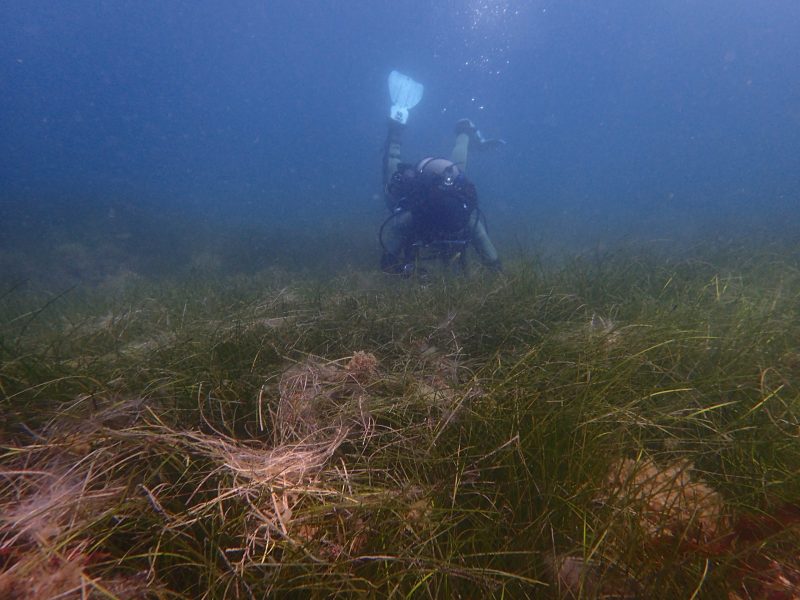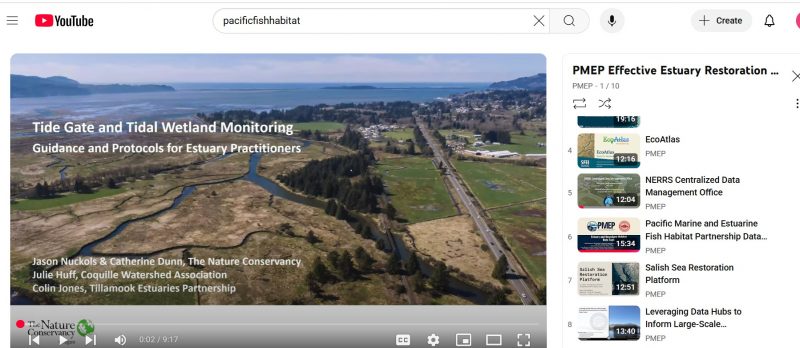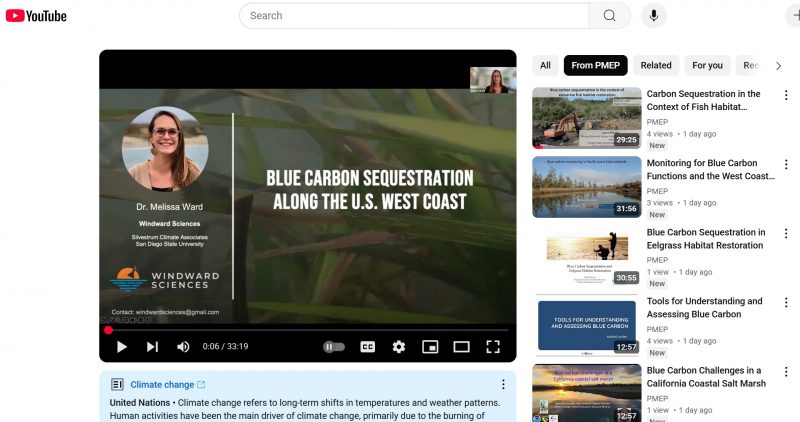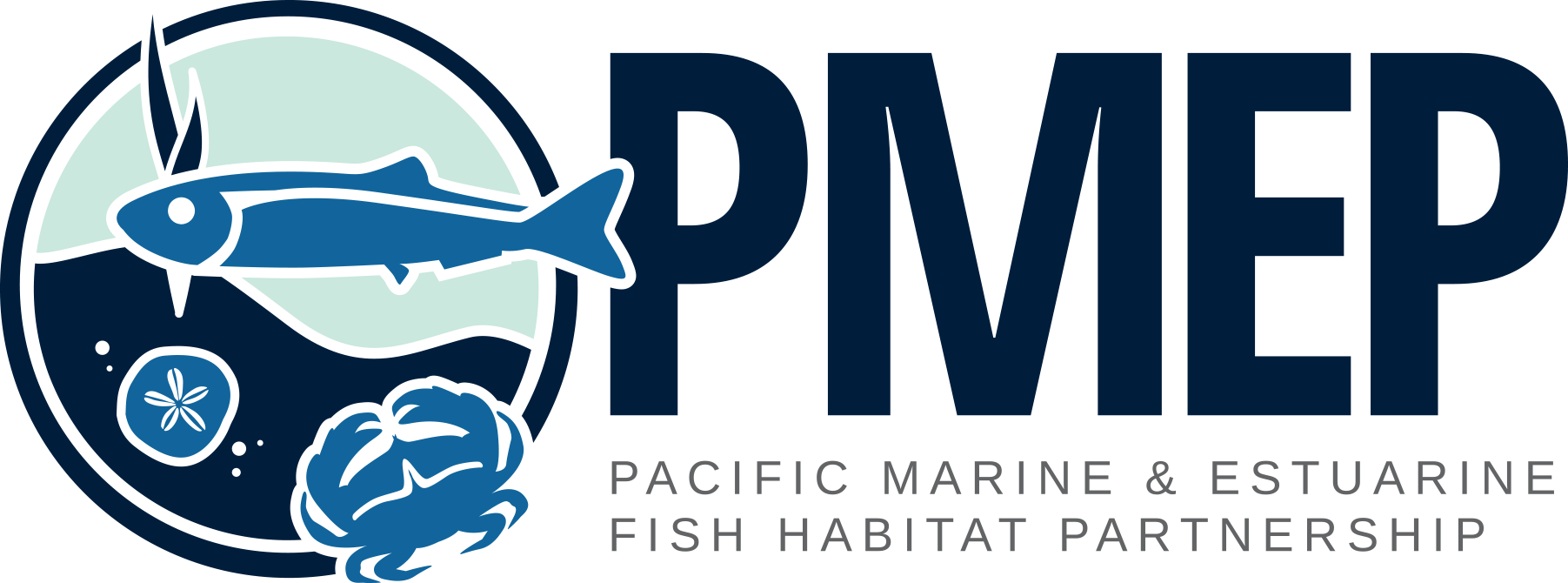
- July 1, 2025
- Joan Drinkwin
- Announcement, Funding
- 0 comments

- May 28, 2025
- Joan Drinkwin
- Announcement, Symposium Presentation
- 0 comments
Presentations and recordings are available from our Promoting Effective Estuary Restoration May 6 virtual symposium/workshop focusing on Monitoring Guidance, Data Hubs, and Collaborative Platforms. Check them out on the PMEP YouTube channel!

Exciting times for our Promoting Effective Estuary Restoration Project! Registeration is open for the May 6 virtual symposium/workshop focusing on Monitoring Guidance, Data Hubs, and Collaborative Platforms. And presentations and recordings from our March 4 Symposium on Blue Carbon and Estuary Restoration are now available. Check out May 6 speaker profiles and registration link and find presentations from March 4 and earlier events on the project page HERE:
